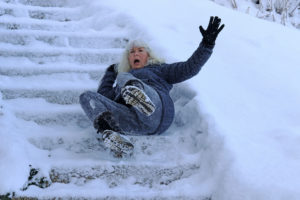
A new study suggests it might.
It’s not often you have to hear about the potential dangers of low blood pressure. For older folks, specifically those over 65 and more, it could be more of a concern than you might think.
A recent study looked at the association between geriatric patients and orthostatic hypotension. Hypotension, which is another way of saying “low blood pressure,” might not seem common, but it can be. Orthostatic hypotension can affect up to 30% of people over 65.
This type of hypotension occurs when a person stands up after sitting or lying down. It is often accompanied by dizziness or lightheadedness.
The study looked at 168 geriatric patients with an average age of 81. Each had visited a geriatric clinic for cognitive or mobility problems.
Participants had their blood pressure continually monitored as they lied down for five minutes and then asked to stand up, and remain standing, for three minutes.
Researchers found that drops in systolic blood pressure—the top number in a reading—was associated with frailty and the number of falls a person experienced. Frailty is measured by looking at mobility, incontinence, cognitive function, and daily activities.
Drops in diastolic pressure, the bottom number, had an impact too. Lower diastolic was associated with frailty markers like unintentional weight loss, exhaustion, inactivity, walking speed, and grip strength.
The researchers concluded that blood pressure drops could be related to frailty and fall risk for older individuals.
A drop in blood pressure, leading to dizziness or lightheadedness, may be a signal that blood isn’t flowing. It’s kind of like energy has been shut off. Standing could lead to a fall, or at least provide a heads up that you may have an issue on the horizon.
Staying on top of blood pressure, therefore, may help prevent falls and frailty. Monitoring blood pressure and taking other measures to reduce the risk of falls—like working on muscle strength and balance—may all play a role in independence and aging.